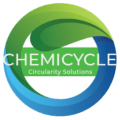The European Union's Packaging and Packaging Waste Regulation (PPWR) has been officially published in the Official Journal of the European Union
The European Union's Packaging and Packaging Waste Regulation (PPWR) has been officially published in the Official Journal of the European Union, making it binding as of today. This regulation introduces significant changes aimed at reducing packaging waste and enhancing recyclability across the EU.
Implications for Waste Management:
The PPWR mandates that all packaging on the EU market be reusable or recyclable in an economically viable manner by 2030. This initiative is expected to substantially decrease packaging waste, thereby alleviating the burden on waste management systems. Additionally, the regulation enforces the "polluter pays" principle, holding producers accountable for the costs associated with managing packaging waste.
Implications for Company Compliance:
Companies operating within the EU must adhere to several key requirements under the PPWR:
- Packaging Minimization: Firms are required to reduce packaging to the minimum necessary to ensure its functionality, such as product safety and logistics. Packaging designed solely to increase product volume, including features like double walls or false bottoms, is explicitly prohibited. However, there is an exemption for designs and trademarks that were protected in the EU before the regulation's entry into force.
-
Recyclability and Reusability: By 2030, all packaging must be reusable or recyclable in an economically viable way. This necessitates companies to reassess and potentially redesign their packaging materials and processes to meet these standards.
- Substance Restrictions: The regulation imposes restrictions on certain substances used in packaging, including prohibitions on substances of concern such as per- and polyfluoroalkyl substances (PFAS). Companies must ensure that their packaging materials comply with these substance restrictions.
- Labelling Requirements: There are new labelling obligations, including mandatory information on material composition, to facilitate recycling and inform consumers. Companies must update their packaging labels to comply with these requirements.
- Sanctions for Non-Compliance: Member States are required to incorporate sanctions for non-compliance into their national laws within 24 months of the PPWR coming into force. For certain offences, such as obligations related to excessive packaging, reusable packaging, or refilling, the regulation prescribes fines on producers who fail to comply.
Recommendations for Companies:
- Review and Redesign Packaging: Assess current packaging designs to ensure they meet the new minimization and recyclability requirements. This may involve reducing packaging size, eliminating unnecessary components, and selecting materials that are more easily recyclable.
- Evaluate Substance Use: Identify and replace any substances of concern in packaging materials to comply with the new restrictions.
- Update Labelling: Ensure that all packaging includes the required information on material composition and recyclability to meet the new labelling standards.
- Monitor Compliance Deadlines: Stay informed about the implementation timelines and ensure that all necessary changes are made within the stipulated periods to avoid potential sanctions.
Chemicycle Circularity Solutions involvement in environmental initiatives and the reuse of plastics and foams, present an opportunity to align our operations with the EU's sustainability goals. By proactively adapting to these changes, we can not only ensure compliance but also help to position your company a leader in sustainable practices within the industry.
Sources of information:
https://environment.ec.europa.eu/topics/waste-and-recycling/packaging-waste_en
